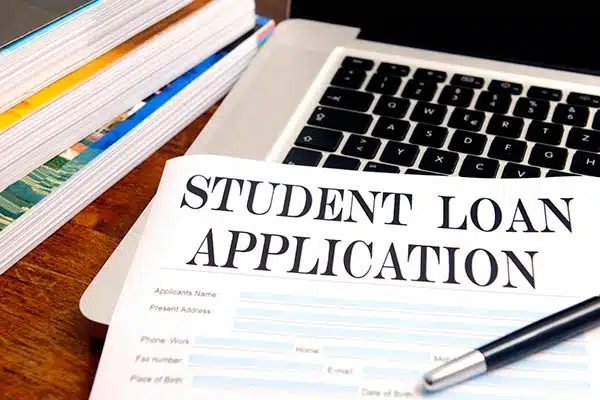Student loans can be a heavy burden for many individuals, but with careful planning and dedication, you can pay them off faster than you might think. In this article, we’ll explore eight simple steps to help you pay off your student loans quickly, so you can achieve financial freedom and focus on your future goals.
Step 1: Understand Your Loans
Before you can start paying off your student loans, it’s essential to understand what you’re dealing with. Take the time to gather all the necessary information about your loans, including the total amount owed, interest rates, and repayment terms. This will give you a clear picture of your financial situation and help you make informed decisions moving forward.
Step 2: Create a Budget

Creating a budget is crucial for managing your finances effectively and allocating funds towards paying off your student loans. Start by listing all your monthly expenses, including rent, utilities, groceries, transportation, and entertainment. Then, determine how much money you can comfortably allocate towards your loan payments each month.
Step 3: Prioritize High-Interest
Loans If you have multiple student loans, prioritize paying off the ones with the highest interest rates first. By focusing on these loans, you can minimize the amount of interest accruing over time and save money in the long run. Make the minimum payments on all your loans, but allocate any extra funds towards the loan with the highest interest rate.
Step 4: Explore Repayment Options
Explore different repayment options offered by your loan servicer to find the best plan for your financial situation. Some options, such as income-driven repayment plans or loan consolidation, may lower your monthly payments and make it easier to manage your debt. However, keep in mind that extending your repayment term may result in paying more interest over time.
Step 5: Increase Your Income
Consider ways to increase your income to accelerate your student loan repayment process. This could involve taking on a part-time job, freelancing, or finding ways to monetize your skills and hobbies. Any additional income you earn can be put towards paying off your loans faster and achieving your financial goals sooner.
Step 6: Cut Expenses
Look for areas where you can cut expenses to free up more money for loan payments. This could involve reducing discretionary spending on items like dining out, entertainment, or shopping. By making small adjustments to your lifestyle and spending habits, you can redirect more funds towards paying off your student loans.
Step 7: Make Extra Payments

Whenever possible, make extra payments towards your student loans to accelerate the repayment process. Even small additional payments can make a significant difference over time by reducing the principal balance and the amount of interest accruing. Consider using windfalls such as tax refunds or work bonuses to make lump-sum payments towards your loans.
Step 8: Stay Motivated and Persistent
Paying off student loans can be a long and challenging journey, but it’s essential to stay motivated and persistent. Keep your goals in mind and celebrate small victories along the way. Surround yourself with a supportive network of friends and family who can encourage you on your financial journey. Remember that every payment brings you one step closer to becoming debt-free.
Conclusion
Paying off student loans may seem daunting, but by following these eight simple steps, you can take control of your finances and pay off your loans faster than you thought possible. Remember to stay focused, stay motivated, and keep your eyes on the prize of financial freedom. With determination and persistence, you can achieve your goal of becoming debt-free and building a secure financial future.
Also Refer : How To Choose The Right Loan For Your Financial Goals
FAQs
- How do I know if I have federal or private student loans?
- Federal student loans are issued by the government, while private student loans are issued by banks, credit unions, or other private lenders. You can usually determine the type of loan you have by checking with your loan servicer or reviewing your loan documents.
- Should I focus on paying off my student loans early, or should I prioritize other financial goals like saving for retirement?
- It depends on your individual financial situation. Generally, it’s a good idea to prioritize high-interest debt like credit card debt or private student loans before focusing on retirement savings. However, if you have low-interest federal student loans, you may consider balancing loan payments with contributions to retirement accounts to take advantage of potential investment growth.
- Can I refinance my student loans to get a lower interest rate?
- Yes, refinancing is an option for both federal and private student loans. Refinancing involves taking out a new loan with a private lender to pay off your existing loans. This can result in a lower interest rate and potentially lower monthly payments, but it’s important to carefully consider the terms and potential loss of federal loan benefits before refinancing federal loans.
- What are some strategies for increasing my income to pay off student loans faster?
- Strategies for increasing income may include seeking higher-paying job opportunities, pursuing freelance or part-time work, negotiating a raise or promotion at your current job, or exploring passive income streams such as renting out a room or starting a side business.
- Are there any income-driven repayment plans available for federal student loans?
- Yes, there are several income-driven repayment plans offered by the federal government, such as Income-Based Repayment (IBR), Pay As You Earn (PAYE), Revised Pay As You Earn (REPAYE), and Income-Contingent Repayment (ICR). These plans adjust your monthly payments based on your income and family size, and any remaining balance after a certain period (usually 20 or 25 years) may be forgiven.
- Should I consider consolidating my federal student loans?
- Consolidation combines multiple federal student loans into a single loan with a single monthly payment. While consolidation can simplify repayment and potentially lower monthly payments by extending the repayment term, it may also result in losing certain benefits like interest rate discounts and forgiveness options. Consider the pros and cons carefully before consolidating.
- What are some tips for staying motivated while paying off student loans?
- Staying motivated can be challenging, but setting specific goals, tracking your progress, celebrating milestones, and finding support from friends, family, or online communities can help. Additionally, focusing on the long-term benefits of becoming debt-free, such as financial freedom and increased opportunities for saving and investing, can provide motivation during the repayment journey.





